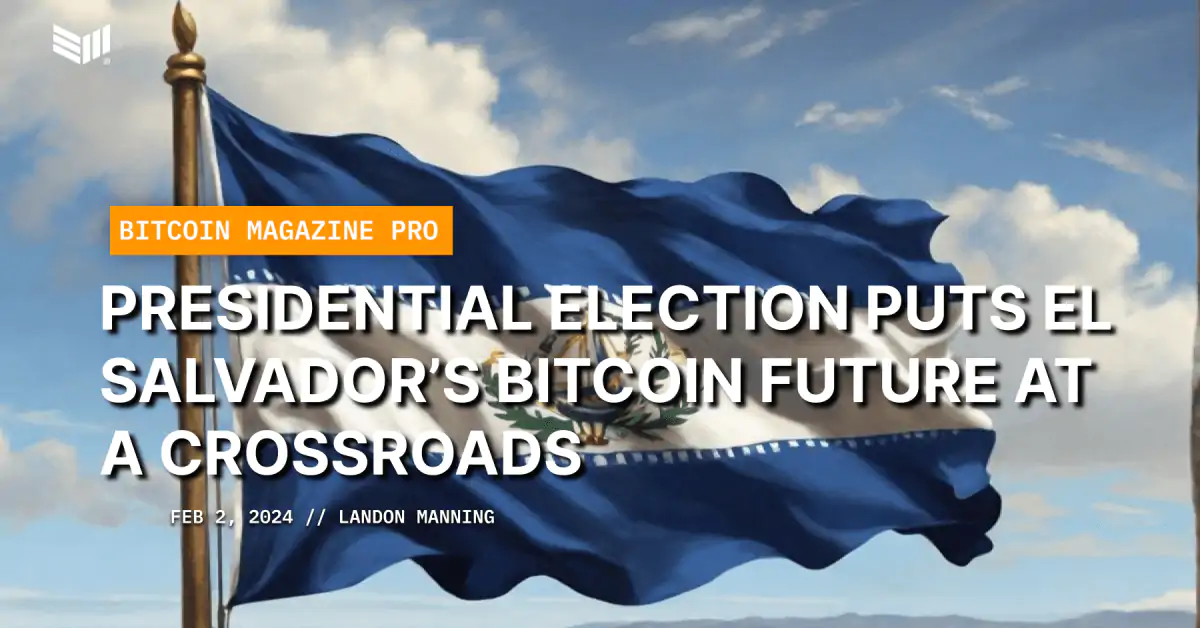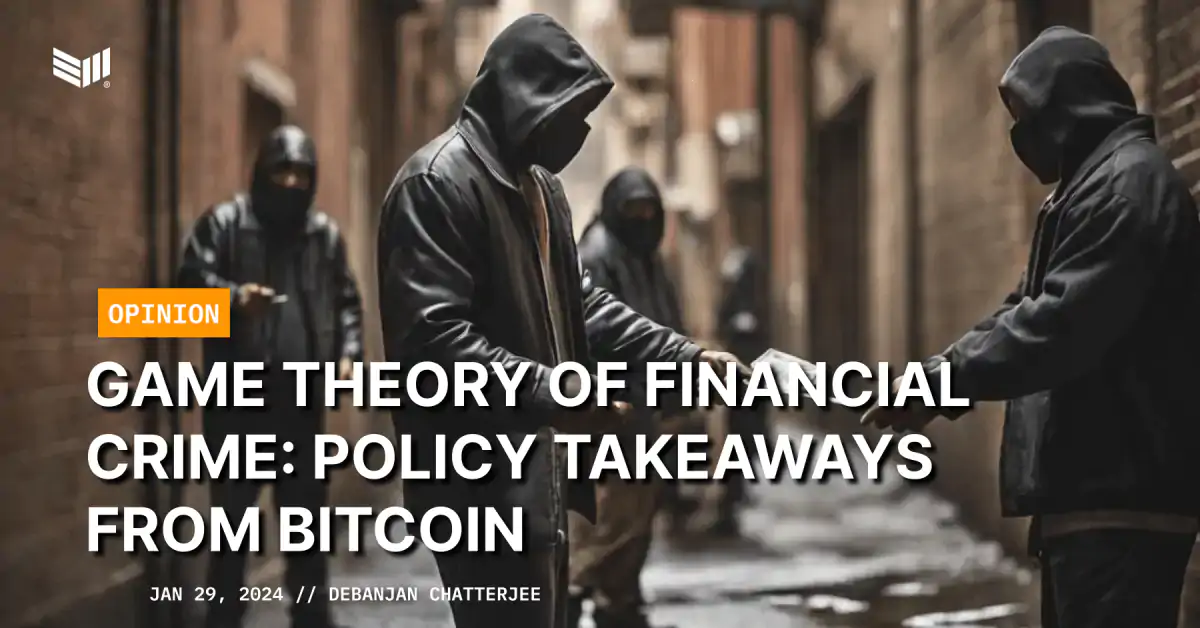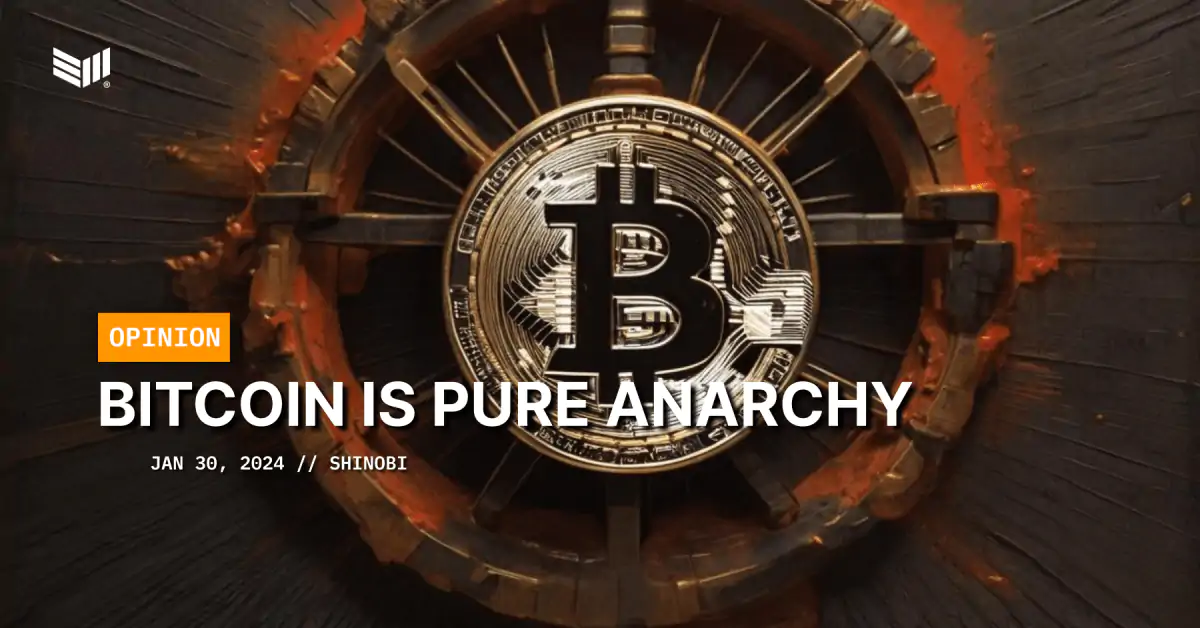The below is an excerpt from a recent edition of Bitcoin Magazine Pro, Bitcoin Magazine's premium markets newsletter. To be among the first to receive these insights and other on-chain bitcoin market analysis straight to your inbox, subscribe now
On Sunday, February 4, El Salvador’s presidential election will determine whether Nayib Bukele and his revolutionary experiment with Bitcoin will have a continued presence in the nation’s future.
Since Nayib became President of El Salvador in 2019, he has enjoyed a fairly broad base of support; he was the first man since 1984 to win independently of the nation’s two major political parties. The topic that has taken his administration to a subject of worldwide discussion, however, has been his support of Bitcoin. Bukele made world history in September 2021 when he raised it to the status of legal currency, and El Salvador’s radical experiment with Bitcoin has captivated interest worldwide ever since.
Bitcoin Magazine Pro is a reader-supported publication. To receive new posts and support our work, consider becoming a free or paid subscriber.
Naturally, a large deal of this interest has been negative, especially from the financial and media establishment worldwide. The Bitcoin law went into effect mere weeks before bitcoin fell from its all-time highs, and this led to no small amount of speculation that the government would lose huge sums as a result. More pressingly, financial institutions like the IMF also repeatedly urged El Salvador to give up on its project, raising the possibility that the country might lose access to loans. However, as of 2024, not only have the government’s investments into bitcoin stockpiles gone firmly into the black, but major financial institutions have also grudgingly accepted the strength of the Salvadoran economy. The nation’s critics have been disproven from this angle, but there’s one more immediate test on the horizon: the matter of Bukele’s re-election.
interview on January 31, Bukele’s running mate Felix Ulloa went to great lengths to stress that a re-election will mean a firm re-commitment to Bitcoin. Although Ulloa revealed that the IMF has quietly been repeating its requests to de-list bitcoin in El Salvador, he was insistent that these pleas are falling on deaf ears. A particular source of strength, he claimed to , was the takeoff of the ETF in the United States. A major victory like this means for him that Bitcoin “enjoys the greatest credibility in the entire world.” Not only did Ulloa claim that the existing laws in support of Bitcoin “will be maintained”, but he also added that the proposed “Bitcoin City'' infrastructure project continues to enjoy the government’s full support.
As far as the polls are concerned, a variety of international press agencies all that Bukele’s victory is practically guaranteed. The centerpiece of his popularity, it seems, actually has nothing to do with Bitcoin, as large numbers of citizens remain unconvinced. Instead, it seems his sweeping crackdowns on gang activity are the main reason, causing El Salvador’s murder rate to plummet from a shocking 105 murders per 100k residents in 2015 to 7.8 per 100k, the lowest in the region. In other words, his voters love him extensively, but as of yet they remain ambivalent on the Bitcoin initiative. Fickle support like this could indeed be dangerous, as future economic difficulties could turn this indifference into outright rejection. However, as far as all polling suggests, Bukele will have another term to convince his people.
Luckily, there are extensive plans in place to attempt to deepen these connections in multiple spheres of life. The usage of an international currency like bitcoin has attracted the flow of international spending, with to the nation spiking in recent years. In addition to these more casual inflows of cash, the government has also more permanent immigration by allowing foreign nationals to directly purchase citizenship with bitcoin investment. These attempts to raise foreign dollars can definitely impact the nation’s citizens, but there are also efforts underway to directly create jobs in this burgeoning industry.
Since October, El Salvador has partnered with several firms to create mining infrastructure powered by geothermal energy. Bitcoin mining is a growing market worldwide, and the use of green energy easily sidesteps the most common refrain against it. These goals of creating domestic jobs and attracting foreign investment both fall under the umbrella of the aforementioned “Bitcoin City” , a plan with the long-term goal of fostering all the multifarious jobs in software development and blockchain engineering associated with the digital asset space.
If El Salvador’s voters do decide to re-elect Bukele on February 4, he’ll have his work cut out for him to ensure that Bitcoin is an enduring presence. As of yet, many of his citizens are either earning extra revenue from international travelers interested in Bitcoin, or involved in building the new pools to mine it. Although the economy is growing, this has not been sufficient to win his people over to the full possibilities of a radical new economic future. Nevertheless, he has won their love anyway, as his government has continually enjoyed fierce public support. In other words, re-election is very likely, and the experiment will continue for the five years of his second term. The major challenge of these five years, however, will be to ensure that Bitcoin will become a fact of life for his people. Still, as daunting of a task as this may seem, he has already been working on normalizing Bitcoin in a wide variety of ways.
Just as one example of this, last year the country partnered with one of its largest distributors, enabling huge numbers of businesses to begin accepting bitcoin for the most mundane transactions. Furthermore, these normalization efforts have extended beyond El Salvador’s borders. El Salvador needs the support of its citizens, but it also wishes to encourage broader support from other nations. The Central African Republic (CAR) was directly inspired by El Salvador when it briefly became the second nation to adopt bitcoin as a legal currency. However, this effort was simply impossible to sustain in a country where around 90% of citizens do not have internet access, and it was shuttered in 2023. CAR was not the only country to be influenced by Bukele’s government, as he actually sent a of “Bitcoin Ambassadors” to Argentina upon the election of its newest President last November. Outreach efforts like this will go a long way to ensure that El Salvador is the first country to accept bitcoin as legal tender, but won’t be the last.
Get more from Bitcoin Magazine Pro in the Substack app
Available for iOS and Android
Some of these initiatives highlight the way that El Salvador’s Bitcoin project has radically different aims from the ETF battle in the United States, even though Salvadorans like Vice President Ulloa are naturally heartened by its victory. The ETF is a financial instrument that allows ordinary Americans some extra opportunities to indirectly profit from Bitcoin’s success, while Bitcoin has a radical vision for anyone in the world to take control of their economic fortunes. Nayib Bukele has shown a real interest in fostering Bitcoin as a part of everyday life, as shown by the variety of ways he’s encouraged economic development and his attempts at international outreach. Our community needs fighters like those who pursued the ETF battle, but it’s important to remember that Bitcoin means so much more than a way to earn fiat currency. If Bukele has the chance to really embed Bitcoin in El Salvador’s society, it’ll show the world what kind of success Bitcoin can offer us all.



 BlocksInform
BlocksInform




 Bitcoin
Bitcoin





